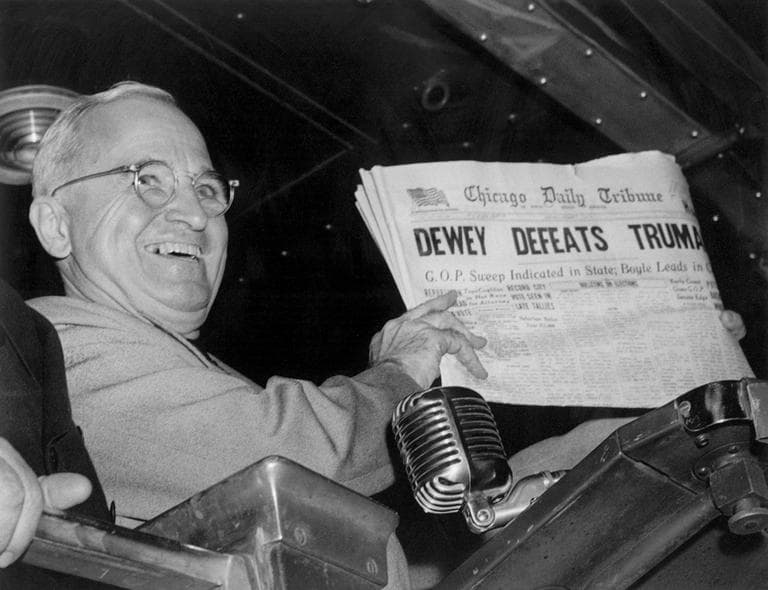Advertisement
Will The Media Have Another 'Dewey Defeats Truman' Moment?
Resume
With polls showing that the presidential election is a dead heat, could we have another "Dewey Defeats Truman" moment?
The iconic 1948 image of the Chicago Tribune's inaccurate headline, has served as a cautionary tale for journalists ever since.
But that has prevented some major gaffes.
CNN and Fox News both botched the the Supreme Court decision on healthcare reform in June, when they reported that the individual mandate had been struck down, when it had in fact had been upheld.
...the statisticians calling the races are blocked off from the rest of the news staff in a separate room.
But what will television networks be doing differently this year to make sure that mistakes from the past aren't repeated?
New York Times media reporter, Brian Stelter, said that network executives have promised to tread cautiously Tuesday night, and will only call states when they feel confident of the information.
In the case of NBC News, the statisticians calling the races are blocked off from the rest of the news staff in a separate room.
While NBC is building a physical wall, it's almost impossible to build a virtual firewall around news organizations that are constantly monitoring social media sites like Twitter.
Several news organizations have asked their reporters to refrain from re-tweeting election results, until they have been verified. But that won't stop the public from scanning Twitter and Facebook for signs as to who has won the election.
And if the networks do get the results wrong, will that turn off viewers? Maybe not.
"Maybe people are going to be more accepting of the fact that what they hear on CNN and networks is only the first draft of history - not necessarily the most accurate draft of history," Stelter said.
- New York Times: Facing an Election Night Clamor
Guest:
- Brian Stelter, media reporter for The New York Times. He tweets @brianstelter.
This segment aired on November 6, 2012.